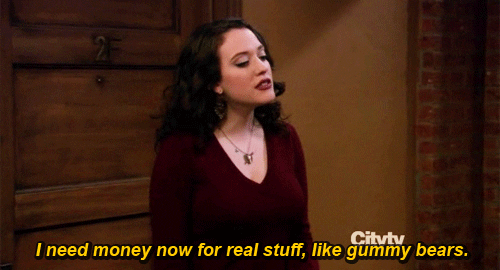I’m swanning about working hard in Paris so this will be another shorter one, but recently my friend Sally Nicholls mentioned this Minimum Income Calculator (from the Centre for Research in Social Policy at Loughborough University) to determine if you earn enough to have a decent standard of living.
This is something I can never get my head around. I’m bad at updating numbers so I still expect things to cost the same as they did years ago (in the same way I am astonished when a friend’s 4-year-old turns out to be 14). I was horribly aware that last year I basically earned the same as I did in my first office job in the early nineties and knew that couldn’t be good, but had no real clue of what I should be earning at this point.
(I have a vague recollection that a good rule of thumb is £1k for every year of your age, in which case I should have just had a thousand pound increase to take me to £51,000. Lol no.) (But wouldn’t a £1k pay rise every birthday be lovely.)
So. The Minimum Income Calculator. It “shows how much money people need, so they can buy things that members of the public think everyone in the UK should be able to afford.” It takes just a few seconds and tells me that, for “a decent standard of living” I need to earn £39,735 a year.
Even my best year was a way off that. But I like knowing. It gives me something to work towards.
Knowledge about finances only helps if you have enough money coming in. You can know every economic theory in the world but if your essential bills are £100 and your income is only £90, it isn’t going to work.
Helen, 41, Accountant, Manchester
Why do you think women are often reluctant to talk about money?
No-one I know really talks about money outside of their family units or in carefully vague and non-personal ways, men included. There is an unwritten rule that no one wants to be thought of a poor if they’re not doing too well because no one likes pity, but no one wants to be thought of as boasting or gloating if they are doing well. It’s amplified for women because we’re socialised to be selfless and people-pleasers, I think.
What is your relationship with money currently?
I’m in an unusual place at the moment. I’ve been pretty comfortable for a number of years. We’re a two income household and my husband and I are both reasonably senior in our careers, so with his full time salary and my part time salary, we’ve not had to worry about money for a while. (Very different to when we first got together and I used my credit card as a magic money tree every month, as we were brassic.)
However I’ve recently resigned from my job due to workload and stress, and I don’t know what I’m going to do next. So I am in the slightly wobbly position of feeling well afloat, but panic will probably set in the first month I don’t have a payday and my savings fizzle out quite fast.
Did you find working in accountancy helpful to your finances?
Initially accountancy did the opposite of helping my finances. The graduate salary for the first three years is not a high one, as the firm is paying upwards of £10k a year to train you, so money was tight. At two points I lived in London while studying, and spent my entire disposable income on payday, in the pub attached to the business school we studied at.
However after qualifying, the salary was decent and that helped a lot. I paid off my overdraft, graduate loan, credit cards, etc. So being an accountant and learning about finance per se did not help me with my finances; having the salary associated with a qualified chartered accountant did.
Knowledge about finances only helps if you have enough money coming in. You can know every economic theory in the world but if your essential bills are £100 and your income is only £90, it isn’t going to work.
What’s your earliest money memory?
I remember counting out the coins in piggy banks with my Nana, who lived with us. We were at the house we moved out of when I was 4 and a half, and there were ha’pennies in the piggy banks. I can’t remember what year they went out of circulation, but this will have been about 1984 or 1985.
What’s the biggest money mistake you’ve made?
I haven’t had many huge one off spending disasters but I’ve done an enormous amount of frittering - on nights out on the lash when in was younger and then stuff like skincare and more frivolous bits and bobs more recently. Internet shopping is a curse to my finances, it’s too easy to spend a little bit here and a little bit there.
I did once buy a brand new car, primarily because I had a new role at work that involved going to meetings at social services departments all round the south west of England and a car would have avoided the lengthy and unreliable train journeys I had to take. A month later, those meetings got cancelled as they weren’t productive uses of staff time and there I was stuck with a Fiat Panda on 3 years’ finance! However I left that job 6 months later and temped for 6 months and the car was invaluable - so it wasn’t a total disaster.
What’s the best thing you’ve ever spent money on?
Holidays, my kids and things that make life easier like having a fortnightly cleaner and occasionally getting a gardener to rip all the weeds out of our concrete back garden.
But also my health. 18 months ago I paid for a private psychiatrist assessment and was diagnosed with ADHD. I then spent money on private prescriptions for medication and ADHD coaching. I’ve been transferred to NHS care now and Access for Work has taken over my coaching costs for a year which is brilliant. (I’d recommend Access to Work to anyone with a disability who works, either employed or self employed; it can be really life changing help).
Investing in my health in that way was a hugely privileged thing to do, I’m incredibly grateful i was in a position to do it and it has changed my life for the better.
What would you do with £10,000?
My husband makes a snoring noise when I say this as it’s so dull, but I’d pay a chunk off the mortgage. It saves loads in interest charges in the long run. Also I’d be scared I’d fritter it and have nothing to show for it if I didn’t do something with it straight away!
As an accountant, do you have any financial tips?
I have two top financial tips; neither are ground-breaking I’m afraid, both for employed people as that is what I know.
1. ALWAYS remain opted in to the employer pension and at more than the minimum level. Otherwise you are giving away free employer contribution which you will never get back. Do it from the start of your role and you won’t miss that bit of salary and will think of your salary in terms of your net monthly take home pay.
2. Pay all your bills by direct debit the day after your salary comes in. You can get a small discount at some places for doing this and you will see what your genuine disposal income is after bills so you can’t accidentally splurge; splurging becomes a more conscious decision.










